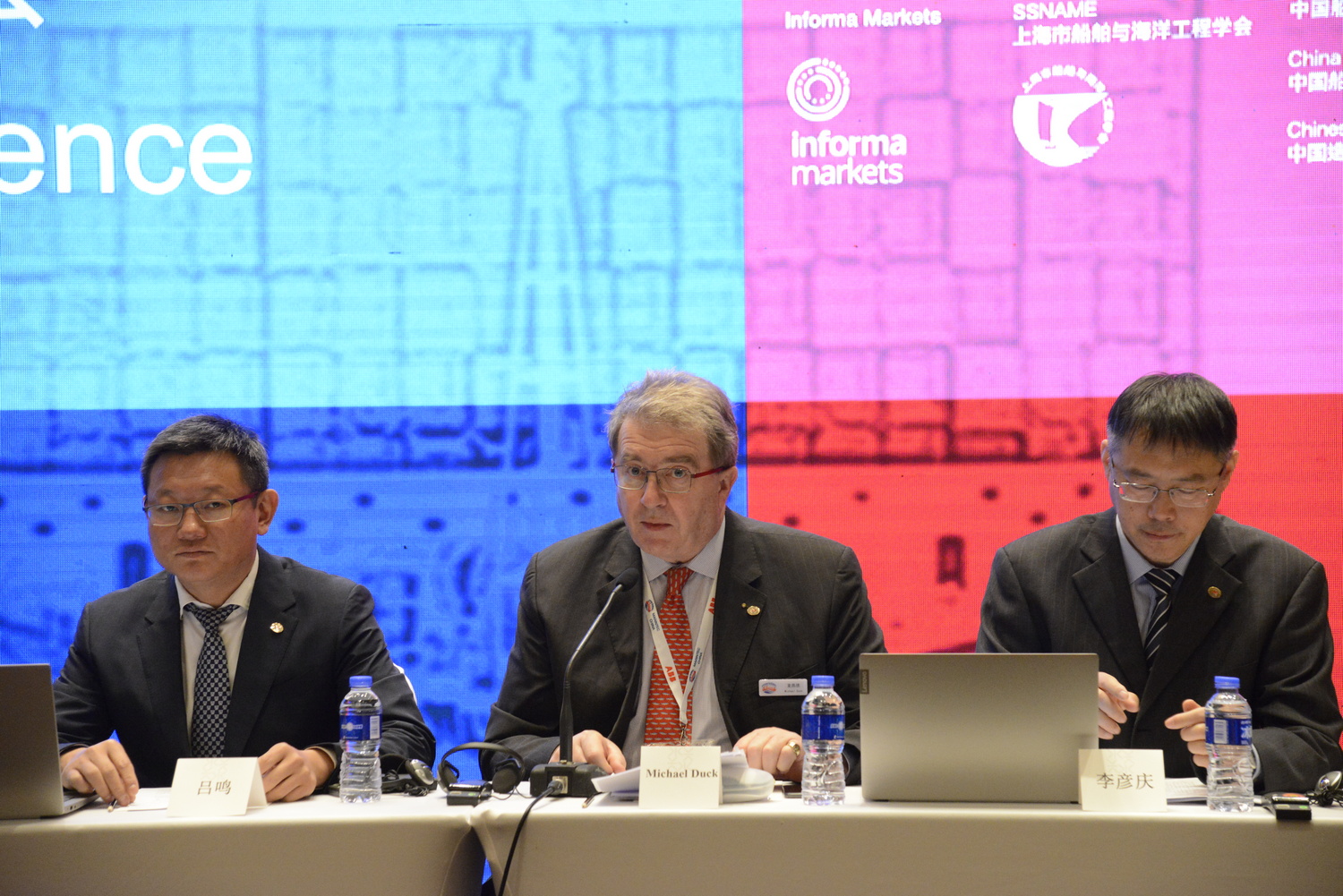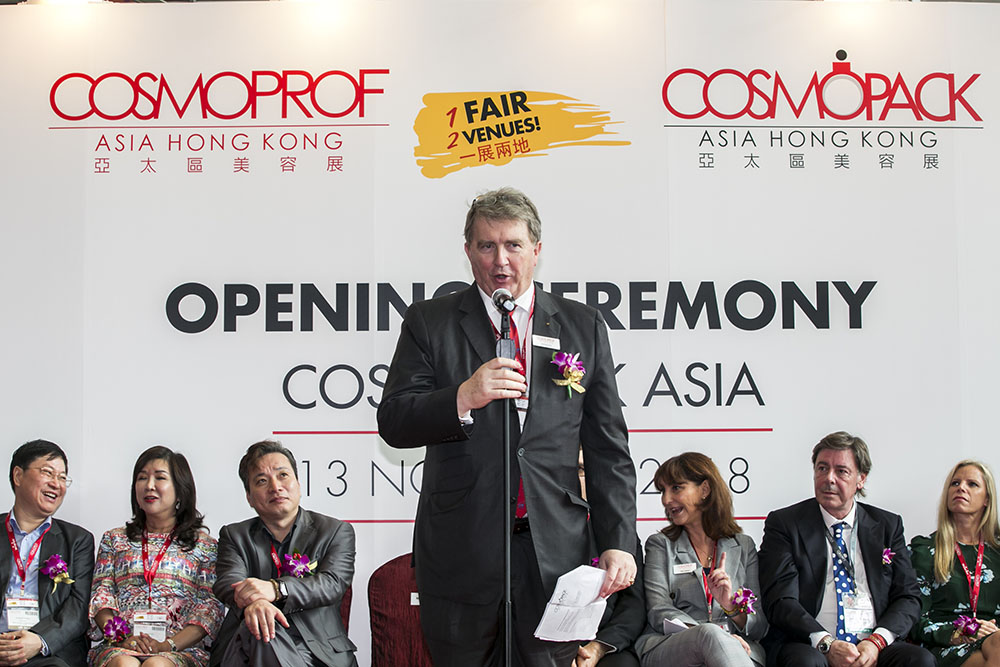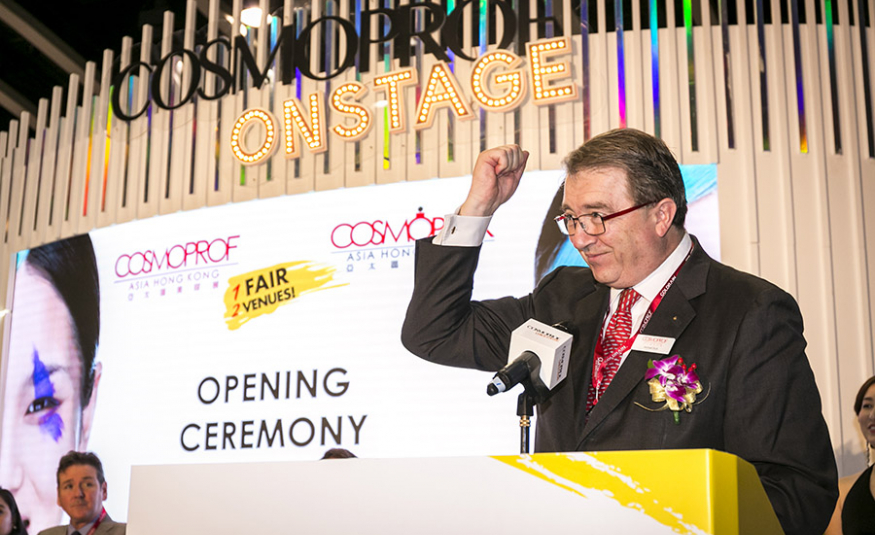UFI president and Informa Markets EVP commercial development Michael Duck looks to the future and offers some tips for tackling the challenges ahead
As new UFI president, what are the priorities for the association and what initiatives do you envisage championing?
The priority for us is to get back to some semblance of normality. The past three years have been horrendous for our industry and those associated with it. And, although in some geographies the trade show/events businesses are back to levels we knew in 2019, many are not.
UFI is the catalyst to bring the industry together to encourage and guide companies/businesses to share best practices. Many companies have not had any cash flow for a very long time. The cash ‘blood’ needs to flow and restart the ‘beating heart’, as without the trade show business, many companies cannot survive.
So, it’s not so much in terms of new initiatives, but concentrating on some key ones that can drive our industry such as: Advocacy – The role we play in encouraging national/local governments and trade associations to use trade shows to stimulate business; Research and Content – The use of findings from our members’ shows that guide exhibitors and buyers to invest in stands/marketing/ data, etc; Education – Everyone wants to be trained better, be brought up to date with new systems and ways to handle business solution.
The more that is offered, the more the personnel will enjoy working for your company. HR/ Talent – Many people moved during the pandemic years to other industries, so new people must be found or old staff need to be re-attracted to the industries. And Sustainability: UFI has signed up many members to the Net Zero Carbon initiative at COP 26 and this is key for all of us.

The association is credited with playing a leading role for the industry in difficult times of Covid. How is it now placed to lead during what is, hopefully, a time of returning shows and growth?
Yes, UFI played a very important role during the pandemic, as it gave constant information to members as to what were the current rules and regulations and as to what ‘hope’ there was on the horizon. Many members were desperate for correct, up-to-date information and good advice and that was shared openly during the many online seminars and conference sessions. We, in turn, offered the best of it out to our customers on a regular basis.
What are the main challenges the association faces?
Challenges are basically those that I have mentioned i.e. the things we need to champion. Information flow is two-way and members need to work well by also ‘giving back’. Many times we have said an association is only as good as the efforts the members put into it. At the root of all members is HR/ Talent; without key hardworking and intelligent staff who enjoy ‘hard working’ we will not get anywhere. There will be issues about pay hikes, as other industries are paying more. More time off/holidays/ maternity/paternity leave will be asked for and options/share ownership, and so on. All of which will cause some inflationary pressure but companies will have to retain the best. The future demands strong leadership and a strong work ethic.
What are some of the key topics UFI will be addressing at its main regional conferences and events this year?
No.1 for global operators is what is happening in China and Hong Kong and the question of when these markets will be back fully to market after such a long absence. At the time of writing, all signs look positive. Opening will be quick, but travel to and from the cities where shows take place will depend on the number of flights/hotels operated. We are also going to be talking about how to operate in unpredictable markets, how to work in successful joint ventures. There will be updates from key regional chief financial officers and on the global economic situation.
And, with your Informa Markets hat on, how has the company weathered the Covid years and how is it placed for the return of shows and their changing format?
Informa Markets is ideally placed for restart after three hard years (experienced by the whole industry). Right from the beginning the company went to its shareholders and obtained a significant cash flow to keep operating. Measures were taken to cut costs and ensure that we were ready on the reopening of each market, which in the USA, Middle East and Europe was six months ago, and to have the right talent in place to put our shows on effectively. In Asia – India and the ASEAN countries – we have had shows taking place with numbers near enough to 2019 levels. In China and Hong Kong we have only been putting on domestic shows in Hong Kong, which has been keeping local teams busy. And for both China and Hong Kong our teams are all ready to restart for 2023.
Which specific shows are you looking forward to seeing come back in Asia and which sectors are likely ahead of the growth curve for organisers?
The three main shows we had special editions of were Cosmoprof Asia – The Beauty sector which was moved to Singapore very successfully. APLF in the Leather sector which was moved to Dubai and Bangkok, and Jewellery, which was moved to Singapore and Dubai. All will have their main Hong Kong shows operating in 2023. The interesting part will be how much new business has been generated in the meantime in Dubai, Singapore and Thailand and will remain for new shows to also grow. We are optimistic that this will happen.

Much of your career has been spent in Asia. Now that China appears to be reopening for trade show business, how much of a relief is that and how quickly will we see a ‘normalisation’ of business in the region?
A huge relief of course! Everyone in China is wanting to get back to business. It has been a truly traumatic time for everyone. Shows will come back relatively quickly in most of ASEAN, and also India is nearly back to full business. Japan and Korea have been operating on a reduced m2 but they have been working all through Covid.
What is missing in most shows today, and for a while until flight schedules are back to normal, are Chinese exhibitors. They have not been able to travel easily. This will change soon.
Domestic Chinese exhibitors will lead the way in China’s reopening. International exhibitors will come back as soon as: a) the flight frequency increases and b) customers have the confidence to fly long distance.
How do the Asian exhibition country markets differ from each other and from other regions of the world? What are the skills necessary for successful business there as an organiser and an exhibitor?
I don’t have enough space to answer this question! But for sure the Asian country markets differ a lot from each other and a lot from the rest of the world. They have to be handled in completely different ways as each has its own culture. This needs to be learnt and experienced. Above all what is needed is patience and treating people as you would wish to be treated.
What new tools will organisers be needing as our businesses evolve and what new issues do you see on the horizon that we need to prepare for?
The Covid period gave us all the time we needed and the energy to work on our Digital offerings. Companies benefited in having had the opportunity to work more closely with customers, both exhibitors and buyers, as to the new challenges. We have also seen the re-emergence of inflationary pressures and we need to handle them well and teach our staff how to work and operate in this new environment.





